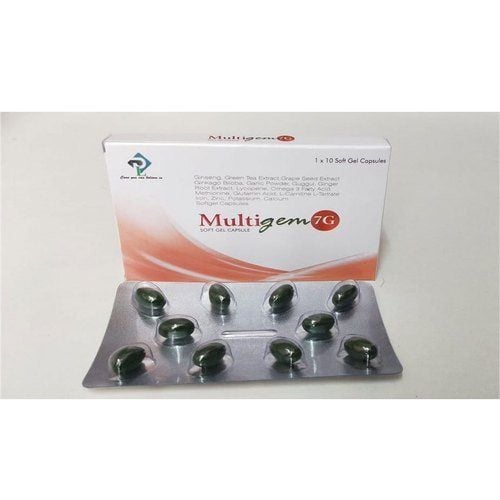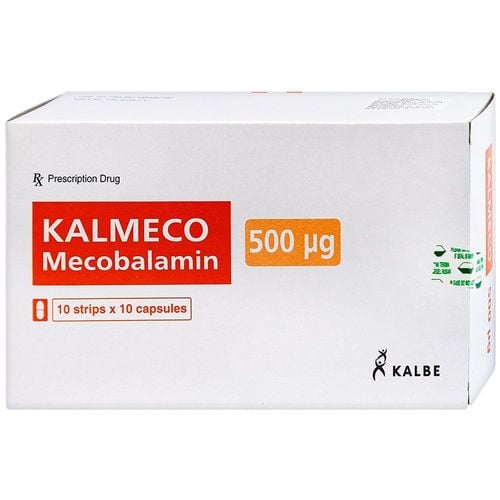This is an automatically translated article.
Hemifere is a drug that helps to supplement iron, increase the need for hematopoiesis, to help prevent and treat anemia caused by iron or folic acid deficiency. Before using Hemifere, patients need to carefully consult with their doctor about the correct dosage as well as how to use the drug, in order to achieve the highest effectiveness.1. What is Hemifere?
Hemifere is a drug used to prevent and treat cases of iron deficiency anemia, which need an increased need for hematopoiesis and iron supplementation, such as people with nutritional deficiencies, pregnant women / breastfeeding, people who have just had surgery or are in the recovery period after a serious illness. The drug is in the form of tablets, manufactured by The Schazoo Pharmaceutical Laboratories (Pvt.) Limited – PAKISTAN.
In one tablet Hemifere contains the main ingredients iron (III) hydroxide polymaltose complex and folic acid. Specifically:
Iron (III) complex: Is a mineral that plays an extremely important role in the blood and tissues in the body. In the drug Hemifere, the content of elemental iron accounts for 100mg, which is prepared in the form of polymaltose iron hydroxide salt. Folic acid: Is a vitamin of group B, also known as vitamin B9, has the effect of creating red blood cells for the blood and plays an important role in the synthesis of protein nucleotides for the body.
2. Indications and uses of Hemifere
2.1 Indications for the use of Hemifere According to experts, cases are indicated for the use of Hemifere, including:Treatment for iron malabsorption in patients with atrophic gastritis, gastric bypass. , or chronic enteritis . Treatment of patients with iron or folic acid deficiency in pregnant/lactating women due to inadequate intake from normal nutrition. Prevention and support in the treatment of anemia caused by iron and folic acid deficiency. Treatment of cyanosis in women during the menstrual cycle. 2.2 Pharmacology and mechanism of action of the drug Hemifere Folic acid (vitamin B9) is a vitamin of the B group, which is reduced to tetrahydrofolate - a coenzyme that plays an important role in many metabolic processes, typically the synthesis of pyrimidine or purine nucleated nucleotides. This shows that folic acid has a certain effect on the body's DNA synthesis. When vitamin C is present, folic acid will be converted into leucovorin, which is essential for the synthesis of RNA and DNA. In addition, folic acid is also indispensable for the synthesis of nucleoprotein as well as the process of making red blood cells of the body. Therefore, when there is a deficiency of folic acid, the patient can develop megaloblastic anemia, similar to anemia caused by vitamin B12 deficiency. In addition, folic acid is also involved in the structure - using the format and some amino acid modifications.
When entering the body, Hemifere drug is rapidly released in the stomach, then absorbed mainly in the first part of the small intestine. Meanwhile, dietary folic acid is absorbed and distributed mainly in tissues throughout the body.
The active ingredients in the drug are stored mainly in the liver and are actively concentrated in the cerebrospinal fluid. The amount of drug excreted in the urine per day is from 4 to 5 micrograms. When taking high doses of folic acid, the amount of vitamin excreted in the urine tends to increase proportionally. In addition, folic acid can also cross the placenta and breast milk.
3. Dosage and usage of Hemifere
3.1 Dosage of Hemifere The recommended dose of Hemifere will be based on the age and health status of each subject, specifically:Adults and children over 12 years old
Dietary supplements: Phase Treatment lasts about 8-12 weeks, take 1 tablet per day. Treatment: Take 3 times / day, one tablet each time. Pregnant women should take 1 tablet / day and use it regularly throughout pregnancy until postpartum. For women aged 15-30 years (not pregnant) should take 1 tablet / week. Children < 12 years old
Hemifere tablets are not suitable for children under 12 years of age. Children this age should use drops or syrup.
Note: The above dose is for reference only, patients should discuss with a specialist to get the right dose for their health condition.
3.2. How to use Hemifere Because the dosage form of Hemifere is a tablet, patients can take the drug with water or chew it directly. The drug should be taken after meals for maximum absorption. However, you need to avoid taking the medicine with soft drinks, carbonated water, alcohol or coffee.
4. What to do when taking an overdose or forgetting a dose of Hemifere
4.1 How to handle an overdose of Hemifere Taking an overdose of Hemifere does not help patients improve symptoms but also increases the risk of poisoning or experiencing serious side effects. If you have overdosed, go to the nearest medical facility or health care facility immediately for diagnosis and treatment.When you go, remember to bring the cover, brand or medicine box so that the doctor can capture the necessary information. You also need to avoid giving your medication to other people even though you know they appear to be suffering from the same condition. This can lead to an overdose of the drug.
Because the iron component in Hemifere tablets is in the form of iron (III) polymaltose complex - a macromolecular structure of many iron (III) hydroxide nuclei and hydrolysed dextrin (polymaltose) molecules, which helps to control absorption through cell membranes when using drugs safely. This avoids the risk of drug overdose compared with products containing inorganic iron.
Currently, there is no documented information on the toxicity of folic acid overdose. Because this substance is water soluble, so if taken in excess, the body will be excreted through the urine.
4.2 What to do when you miss a dose of Hemifere In case you miss a dose of Hemifere, you need to take the dose as soon as possible. However, if it is too close to the time for your next dose, it is best not to take a double dose, but just take the next dose as directed by your doctor. Taking up a dose at the same time can lead to an overdose.
5. Contraindications to the use of Hemifere for which subjects?
Hemifere is not recommended for use in the following cases:
People who are allergic or hypersensitive to any of the active ingredients in the drug. Patients with polycythemia vera. People with hemolytic anemia or pernicious anemia. People with iron-infected liver disease. People with iron overload or severe kidney failure. Children under 12 years old.
6. Side effects when using Hemifere
Not everyone who takes Hemifere will experience unwanted side effects. In some cases, the drug can cause symptoms such as:
Mild gastrointestinal upset, including nausea, vomiting, constipation, diarrhea. Upper abdominal pain. The stool is black due to the medicine. The above side effects may occur differently in each subject or not appear at all. If you notice noticeable signs in your body, stop using the drug and immediately notify your doctor for timely treatment.
7. Some notes when using Hemifere
7.1 Precautions when using Hemifere Before using Hemifere, patients should note the following:Do not use iron to treat hemolytic anemia, unless the patient also has iron deficiency. Do not use the drug for people who are regularly treated with blood transfusions, because in the hemoglobin of red blood cells, a significant amount of iron has been transfused. Tell your doctor right away if you are allergic to Hemifere or any other ingredients or medicines. Folic acid should be used with caution in patients with undiagnosed anemia as this may mask the symptoms of pernicious anemia, leading to the development of neurological complications. 7.2 Hemifere Drug Interactions with Other Drugs Interactions between drugs can increase the risk of side effects or change how Hemifere works. Therefore, patients need to tell their doctor about all medicines they are taking, including over-the-counter/prescription drugs, herbal pills or supplements. Absolutely do not arbitrarily use, stop or adjust the dose of the drug without the prescription of the doctor.
Hemifere often interacts with the following drugs:
Antacids, which affect the absorption of iron. Drugs that reduce cyclin absorption, including Doxycycline, Tetracycline,... 7.3 When should Hemifere be stopped? Patients should stop using Hemifere when:
The treatment does not show signs of tolerance or disease remission. Get a prescription to stop the drug from a specialist. The body has symptoms of an allergic reaction or hypersensitivity to the drug. Have been using the drug for too long.
8. How to properly store and handle Hemifere medicine
Each medicine will have a different storage method, so patients should carefully read the storage instructions printed on the package or consult a doctor. As recommended, Hemifere should be stored at room temperature, where there is suitable humidity. You need to avoid leaving the medicine in a place exposed to strong light, direct sunlight or high humidity such as the bathroom. In addition, the drug should be stored out of reach of children, as well as pets.
Hemifere must be used within 36 months from the date of manufacture. If the medicine has expired or shows signs of change in quality or appearance (such as breakage, mold or dampness), you need to throw away the medicine and stop using it immediately. When disposing of drugs, patients should avoid throwing them down the toilet or sewer, but should consult a doctor for proper and safe disposal, to avoid polluting the environment.
Follow Vinmec International General Hospital website to get more health, nutrition and beauty information to protect the health of yourself and your loved ones in your family.
Please dial HOTLINE for more information or register for an appointment HERE. Download MyVinmec app to make appointments faster and to manage your bookings easily.













